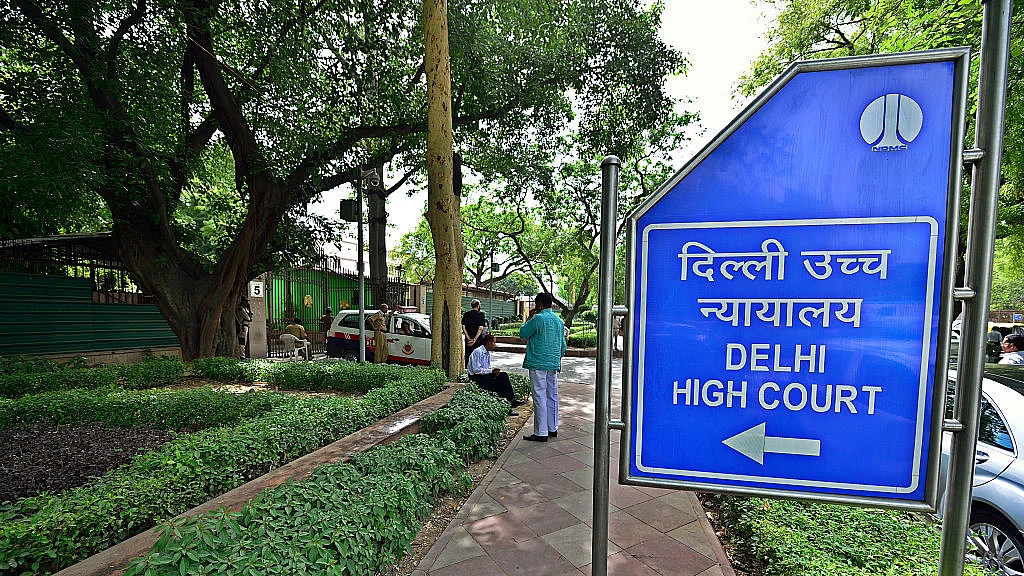Delhi HC photocopying verdict: publishers should mull new strategy
As the High Court’s judgement on photocopying of copyrighted material for educational use only emphasises equitable access to knowledge, publishers should look at online publishing with cheap access

With the Delhi High Court on Friday giving a landmark judgement on Friday that said photocopying of copyrighted material for educational use was allowed under the Indian Copyright law, should the publishers be looking at a different business model? How about publishing books online with some nominal rates, for instance?
“So fundamental is education to a society—it warrants the promotion of equitable access to knowledge to all segments of the society, irrespective of their caste, creed and financial position. Of course, the more indigent the learner, the greater the responsibility to ensure equitable access,” said the division bench of Justice Pradeep Nandrajog and Justice Yogesh Khanna on Friday. Clearly, equitable access to knowledge trumps any argument over intellectual property rights.
Five international publishers — Oxford University Press, Cambridge University Press, United Kingdom, Cambridge University Press India, Taylor & Francis Group, UK.; and Taylor & Francis Books India — had appealed against the single bench order of Justice RS Endlaw.
“Why are the publishers still stuck with the old business model?” says D Raghunandan of Delhi Science Forum. Students have always photocopied notes, text books, reference books and the like. He recalls that as an engineering student at the University of London, he would copy notes by hand or the library there would help him take photostat copies of reference books. Students, or for that matter many other academicians or other professionals, can’t really afford to buy most of these books, he adds.
Apoorva of Association of Students for Equitable Access to Knowledge points out that even in the judgement it was pointed out that the average costs of the books came to about ₹2,500, which indeed was quite steep. Even a “rich” leading education institution such as Harvard University recently had to stop subscribing to many journals due to the high costs, says Apoorva, adding, “How can students even think of affording expensive books?”
“So fundamental is education to a society—it warrants the promotion of equitable access to knowledge to all segments of the society, irrespective of their caste, creed and financial position. Of course, the more indigent the learner, the greater the responsibility to ensure equitable access.”Justices Pradeep Nandrajog and Yogesh Khanna
Globally the trend seems to be leaning towards allowing academic material to be photocopied. Recently, according to the spicyip.com, the President of Costa Rica issued a decree exempting photocopying academic material even if the photocopy shop made a profit.
Raghunandan says the publishers should be changing with the changing times. Music cassettes and CDs are now making way to online music such as iTunes and the like. “The publishers instead of being stuck with highly priced books with huge margins should consider publishing books online with cheaper rates,” he says.
New Text, a New Delhi-based print and electronic publishing house, has its business model based on the “Street Performer’s protocol” where a few people pay for a street performance—making it viable-- while a large public watch the performance without everyone having to pay.
That may well be the way to go. New models of publishing are already emerging and one among them is New Text, a New Delhi-based print and electronic publishing house. It claims to commit itself to expanding equitable, open and affordable access to knowledge and books. Its business model is based on the “Street Performer’s protocol”. That is, the economy of street performances works on the assumption that a few people pay for a performance while a large public watch the performance without everyone having to pay. The few people paying it would make it viable. “Technology allows us to have a financially sustainable model, even without going in for huge profits, but with the emphasis being on the knowledge common,” says Gautam Bhan of New Text.
This kind of thinking may well be what disrupts the existing publishing industry. Large publishing houses may well change and adapt.
Sebastian PT is Editor-at-large of National Herald. He tweets at @sebastianpt7
Follow us on: Facebook, Twitter, Google News, Instagram
Join our official telegram channel (@nationalherald) and stay updated with the latest headlines
- Delhi High Court
- judgment
- photocopying
- copyrighted material
- New Text
- Justice Pradeep Nandrajog
- Justice Yogesh Khanna
- Oxford University Press
- Cambridge University Press
- Taylor & Francis
- Justice RS Endlaw
- D Raghunandan
- Delhi Science Forum
- Apoorva
- Association of Students for Equitable Access to Knowledge
- ASEAK
- Gautam Bhan